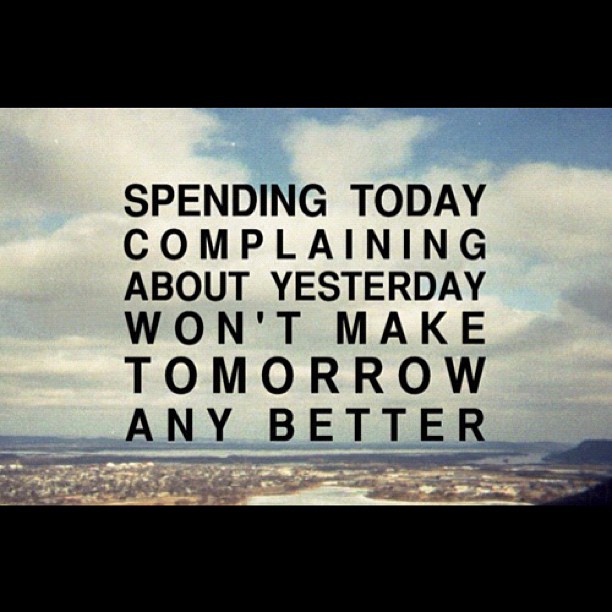By Jeremy Rolleston|2013-07-16T07:00:57+00:00July 16th, 2013|Life lessons, Miscellaneous, Success|




As an athlete I know the power of language for affecting my psychology and then in turn my physiology and performance. But more broadly, language is around us everywhere and is far more powerful in its influence than what we often think. Certain words, or phrases, or ways of saying things can make a big difference.
So here’s a list of 10 things that you should say everyday that will make a difference. Say them to your employees, colleagues, family members, friends, loved one and so on:
1. “Here’s what I’m thinking.”
You’re might be in charge, but that doesn’t mean you’re smarter, savvier, or more insightful than everyone else. So phrase your thinking like this. It allows you to back up your statements and decisions, to give reasons, to justify, to explain … but it also opens up those decisions to discussion, and criticism, and … improvement.
Authority can make you “right,” but collaboration makes everyone right – and makes everyone pull together.
2. “I was wrong.”
Oh how right this is. How often do you someone say they’re sorry though? And how powerful is it when people do? Because the thing is, we will all make wrong decisions at one time or another. We’ll make decisions based on things that looked good on paper but in practice were a failure and caused inconvenience, pain and cost. The fact is – we’ll stuff up in some, way, shape and form as none of us are perfect.
When you’re wrong, say you’re wrong. You won’t lose respect – you’ll gain it.
3. “That was awesome. Well done.”
In many cultures (for example Asia) praise is rare. People worry about the effects of praise. They argue that it can lead to inflated egos, to complacency, to performance drops and so on. But both myself and much of the research disagrees. (Read this article on parenting for example).
In my opinion, no one gets enough praise. No one. Why else do employees consistently report on surveys that they don’t get enough recognition or praise and yet employers always feel they’re giving enough or too much praise to begin with? There are a lot of myths and excuses around giving praise as this article outlines well. Of course there are ways and means, but the point is praise should not be rare.
Praise is a gift that costs the giver nothing but is priceless to the recipient. Start praising. The people around you will love you for it – and you’ll like yourself a little better, too.
4. “You’re welcome.”
Think about a time when you gave a gift and the recipient seemed uncomfortable or awkward. Their reaction took away a little of the fun for you, right? The same thing can happen when you are thanked or complimented or praised. Don’t spoil the moment or the fun for the other person. The spotlight may make you feel uneasy or insecure, but all you have to do is make eye contact and say, “Thank you.” Or make eye contact and say, “You’re welcome. I was glad to do it.”
Don’t let thanks, congratulations, or praise be all about you. Make it about the other person, too.
5. “Can you help me?”
When you need help, regardless of the type of help you need or the person you need it from, just say, sincerely and humbly, “Can you help me?”. You see, as adults, we tend to frame our request for help to signal our importance (you’re smart, experienced, savvy and accomplished after all) and importantly, to protect our egos. Yet, if we just asked the simple question of “Can you help me?”, I promise you’ll get help.
And in the process you’ll show vulnerability, respect, trust and a willingness to listen – which, by the way, are all qualities of a great leader. And are all qualities of a great friend.
6. “I’m sorry.”
Just like “I was wrong” saying “I’m sorry” is powerful. And we all make mistakes and have things we need to apologise for: words, actions, omissions, failing to step up, step in, show support etc. So say you’re sorry. But never follow an apology with a disclaimer like “But I was really mad, because…” or “But I did think you were…” or any statement that in any way places even the smallest amount of blame back on the other person.
Say you’re sorry, say why you’re sorry, and take all the blame. No less. No more. Then you both get to make the freshest of fresh starts.
7. “Can you show me?”
Advice is temporary; knowledge is forever. Knowing what to do helps, but knowing how or why to do it means everything. Just as is the case for “Can you help me?”, when you ask “Can you show me?”, you implicitly show you respect the person giving the advice; you show you trust his or her experience, skill, and insight; and you get to better assess the value of the advice.
Don’t just ask for input. Ask to be taught or trained or shown. Then you both win.
8. “Let me give you a hand.”
Many people see asking for help as a sign of weakness. So, many people hesitate to ask for help. But we all need help at some point. So instead, offer to help. But don’t just say, “Is there anything I can help you with?” Most people will give you a version of the reflexive “No, I’m just looking” reply to sales clerks and say, “No, I’m all right.” Instead, be specific. Say “I’ve got a few minutes. Can I help you finish that?” Offer in a way that feels collaborative, not patronizing or gratuitous.
Model the behaviour you want your employees to display. Then actually roll up your sleeves and help.
9. “I love you.”
This goes without saying. Well, not at work, but everywhere you mean it – and every time you feel it.
10. Nothing.
I think this is the biggest lesson I’ve been slow to learn over the last number of years. Sometimes the best thing is to say nothing – I never knew that could be such a powerful lesson ! Sometimes the best thing to say is nothing. If you’re upset, frustrated, or angry, stay quiet. You may think venting will make you feel better, but it never does. And that’s especially true where your employees are concerned. Results come and go, but feelings are forever. Criticize an employee in a group setting and it will seem like he or she will eventually got over it, but inside, he or she never will.
Before you speak, spend more time considering how employees will think and feel than you do evaluating whether the decision makes objective sense. You can easily recover from a mistake made because of faulty data or inaccurate projections. But you’ll never recover from the damage you inflict on an employee’s self-esteem.
Even fools are thought wise if they keep silent, and discerning if they hold their tongues. (Proverbs 17:28).
Be quiet until you know exactly what to say – and exactly what affect your words will have.













